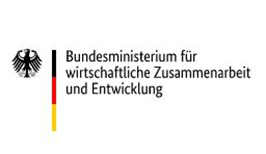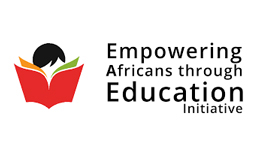BeMINT_Nigeria
Vocational orientation prepares young adults in Nigeria for the digital economy
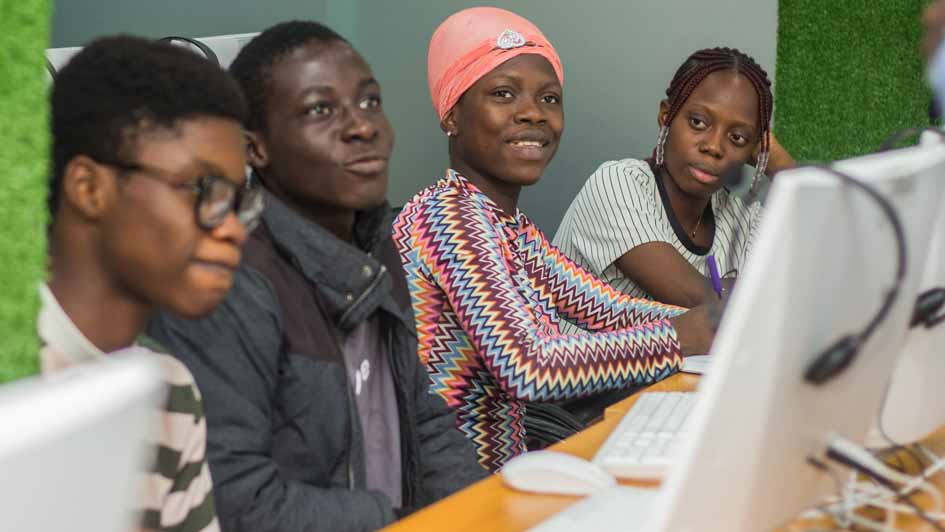
Launched in 2022, the BeMINT project provides Nigerian youth with digital skills to improve their career prospects. Since September 2024, the BeMINT 2.0 has been further developed: This three-year training and internship project provides school graduates in Nigeria with practical and digital skills for the technical and digital labor market. The program aims to support 400 young adults (200 women and 200 men) between the ages of 18 and 24 from low-income households in choosing a career in the IT sector. The graduates receive skills to compete in the Nigerian labor market.
Project
Raising awareness for vocational orientation
The BeMINT project is funded by the German Federal Ministry for Economic Cooperation and Development (BMZ) and implemented by Siemens Stiftung, the Delegation of German Industry and Commerce in Nigeria (AHK), the Nigerian NGO Empowering Africans Through Education Initiative (EAE), and the Lagos State Universal Basic Education Board (LASUBEB). The project aligns vocational orientation with the demands of an increasingly digitalized labor market and to equip the project participants with skills for the long term.
A particular focus is on promoting 21st century skills such as creativity, teamwork, problem solving and critical thinking To address the underrepresentation of women in STEM professions (Science, Technology, Engineering and Mathematics), gender parity is taken into account when allocating slots to the participants.
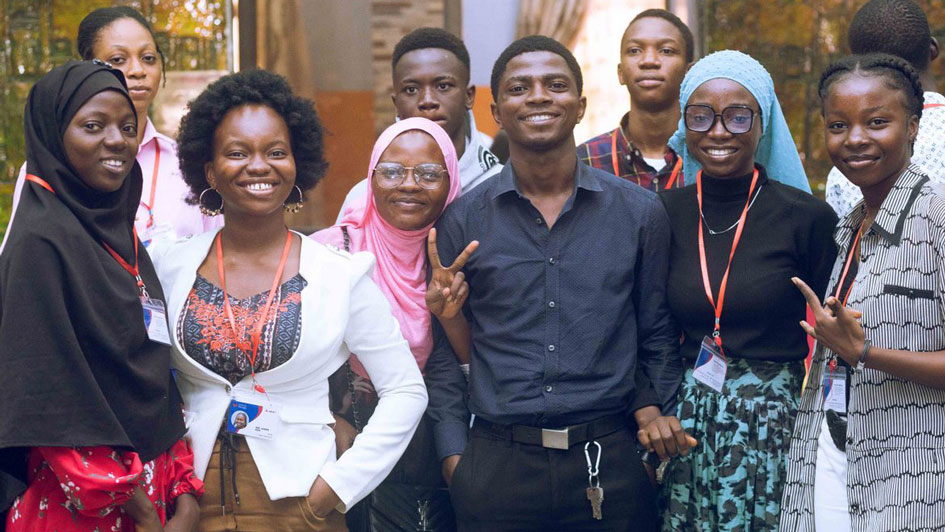
BeMINT aims to break down stereotypes and enable equal opportunities: 50% of participants are young women.
© Siemens Stiftung
The Project
12-week intensive training
Makerspace
Internships in companies
Teacher training
Alumni-Network
Certification by the AHK
Makerspace in action
Watch the video to see how the makerspace makes learning more tangible and enhances career prospects of Nigerian youth.
New online learning program
Participants will work with a digital CAD (computer-aided design) learning program, a part of the “Hour of Engineering” initiative. This cloud-based software provides an intuitive introduction to the world of CAD and encourages problem-solving thinking and enthusiasm for engineering. With a user-friendly interface, it enables a creative approach to technical topics and inspires the next generation of engineers and technicians. The software combines mechanical and electrical design, simulation and data management. The makerspace is equipped with 3D printers and other innovative tools to encourage the young partcipants to turn their digital models into their first physical prototypes.
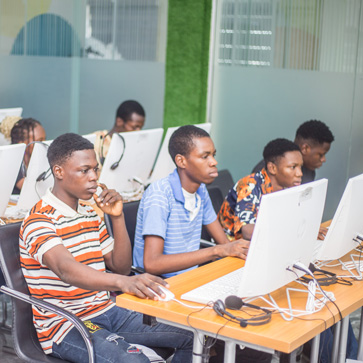
Project stages
Continuation of BeMINT after successful first round
Between July 2022 and June 2023, 300 young people from the districts of Badagry, Epe, Ikeja, Ikorodu, and Lagos City were part of the first BeMINT cohort as part of BeMINT 1.0. The second round of the project started in September 2024. Since its inception, the project focuses on:
- Collaborative learning to promote the active participation of all learners
- Long-term integration of vocational orientation in schools
- STEM workshops as a basis for developing start-ups concepts
BeMINT 2.0 (September 2024 to August 2027) integrates the lessons learned from the first project cohort. The innovations are:
- Makerspace as an open learning space for collaborative and interdisciplinary learning. It offers easy access to 3D technologies, tools and materials and participants can realize their initial ideas and prototypes.
- Longer internship (12 weeks instead of 6), which offers both young people and employers more opportunities to get to know each other
- Longer duration (3 years instead of 1) to allow for a more detailed measurement of impact.
- B-Level certification by the AHK
- Involvement of Alumni
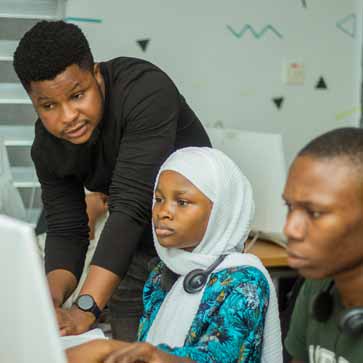
Outcome of BeMINT 1.0
The project strengthened educational equity and career opportunities for young people and established an awareness of vocational learning in the communities. Cooperation with government institutions, NGOs and small and medium-sized enterprises (SMEs) created synergies that benefited vocational orientation and IT infrastructure in public schools, especially in disadvantaged neighborhoods. The participants took their first steps and gained practical experience in the job market. Four alumni received scholarships to study in Nigeria and the USA. Three alumni founded their own start-ups after the project.
304
Certified STEM development program graduates
142
Participants started an internship
117
Participants sucessfully completed their internships
15
Got employed after completing the internship
29
Participants got a university entrance qualification
56
Trained teachers to deliver practical STEM lessons
Closing ceremony of BeMINT 1.0
The energy is palpable: Over 300 students received their certificates at the BeMINT graduation ceremony.
Contact
Do you want to work with us? Do you have questions?
Project manager
Rebecca Ottman
rebecca.ottmann@siemens-stiftung.org
+49 174 155 94 83
Would you like to learn more?
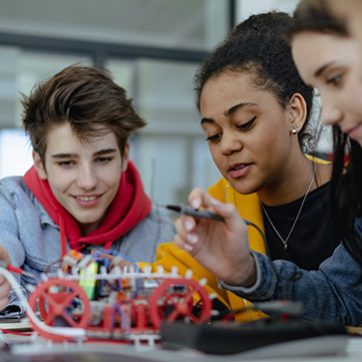
Work area: Education
Technology is playing an increasingly important role in our everyday lives. As a result, the importance of STEM skills (science, technology, engineering and mathematics) is constantly increasing. That is why we are committed to STEM education that promotes skills for the 21st century and a sustainable future.



